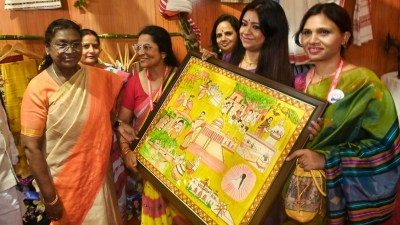Farming the vote
Away from the arc lights, away from the daily head counts of actors and cricketers newly enrolled in political campaigns, lies the battle fo...

Away from the arc lights, away from the daily head counts of actors and cricketers newly enrolled in political campaigns, lies the battle for the heart of India. In Patiala on Thursday, Prime Minister Atal Bihari Vajpayee opened his bid for re-election by pegging the campaign to agriculture and development. It is to be hoped that his NDA colleagues as well as his political components take the cue and restore Campaign 2004 to substantive issues. A government leveraging the incumbency factor, as the BJP-led alliance is currently attempting, is a bold new ploy in Indian politics. In the recent round of assembly elections the voter plumbed for a fresh contract with political candidates focused on matters of governance and development. It is surprising then that so much of the discourse in Campaign 2004 has centred on trivia and personal calumny.
In Patiala the prime minister extended the NDA8217;s 8216;India Shining8217; plank to the farm sector. India, he said, was poised on the cusp of a second green revolution, a dramatic leap in agricultural productivity and rural income that he promised would be reality if the Central government were to be returned to power. He separated the sins of omission on the part of the state and Central governments 8212; holding, for instance, the Punjab administration responsible for failing to collect its dues in the Centre8217;s bailout package for sugarcane farmers. It is a battle that is certain to be joined. Many could accuse the NDA government of failing the agricultural sector. Development, and especially agriculture, is a task that cannot be the responsibility of a state or the Centre alone. Agriculture is designated a state subject in the Constitution. Yet, important reforms perforce require cooperation with the Centre and other states. In rationalising subsidies, fostering crop diversification and setting optimum support prices, the participation must be wide.
In months past we identified the New Voter, a voter visibly impatient with obfuscatory rhetoric and sharp enough to zero in on important issues and reward sincerity and purpose. Agriculture, with two-thirds of the population directly reliant on it for livelihood and the rest for overall economic indicators, has to be a key battleground in Elections 2004. Politicians would ignore it at their own peril.
- 01
- 02
- 03
- 04
- 05































